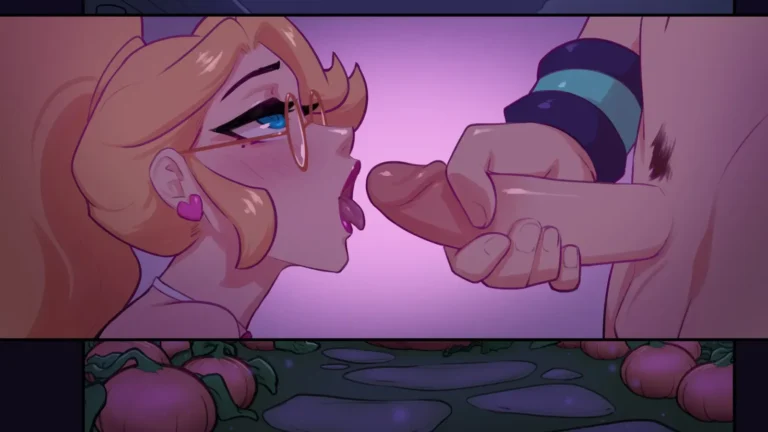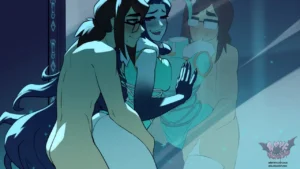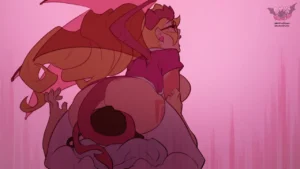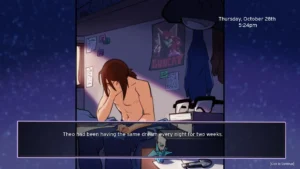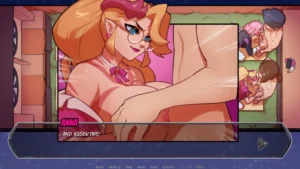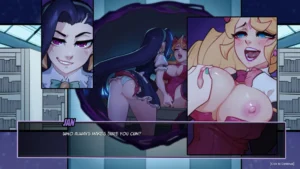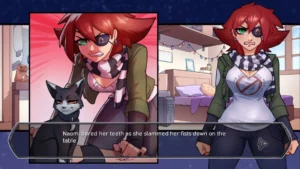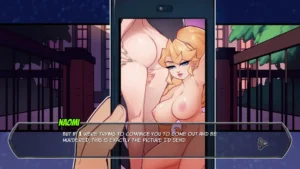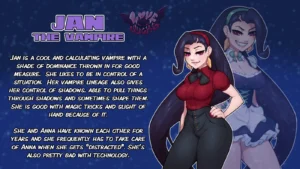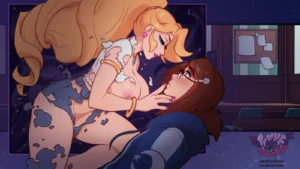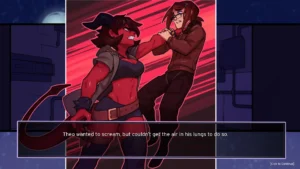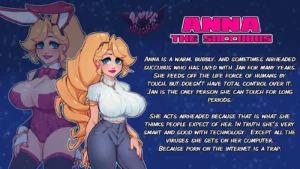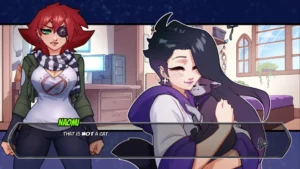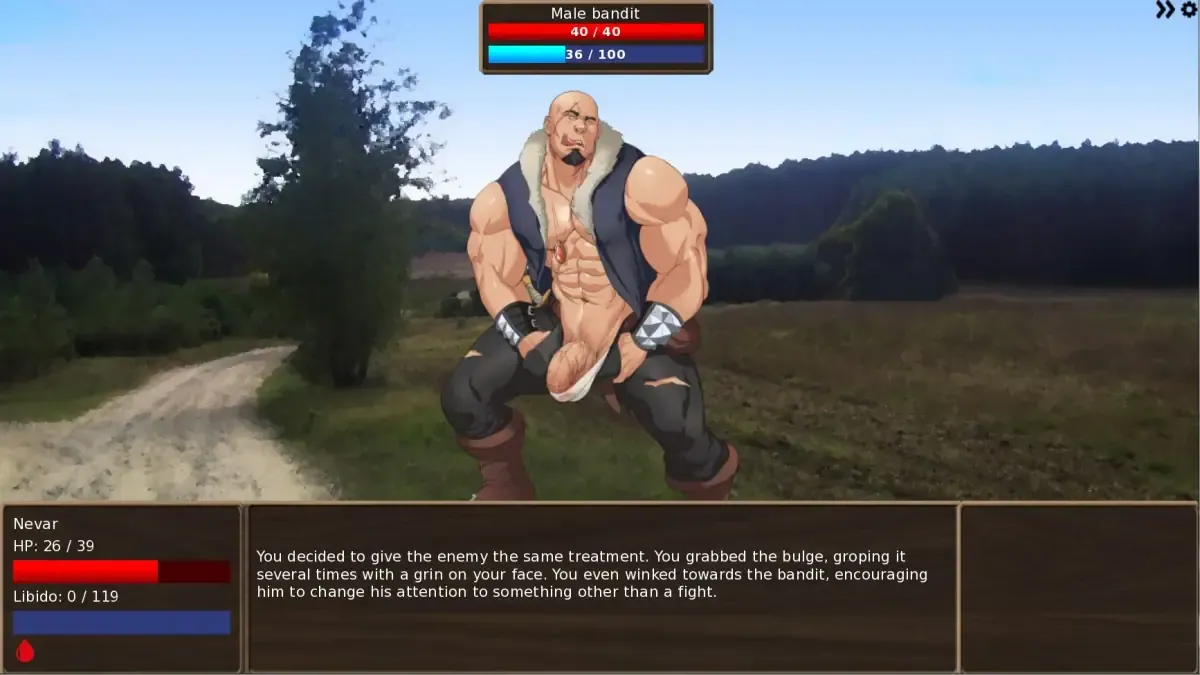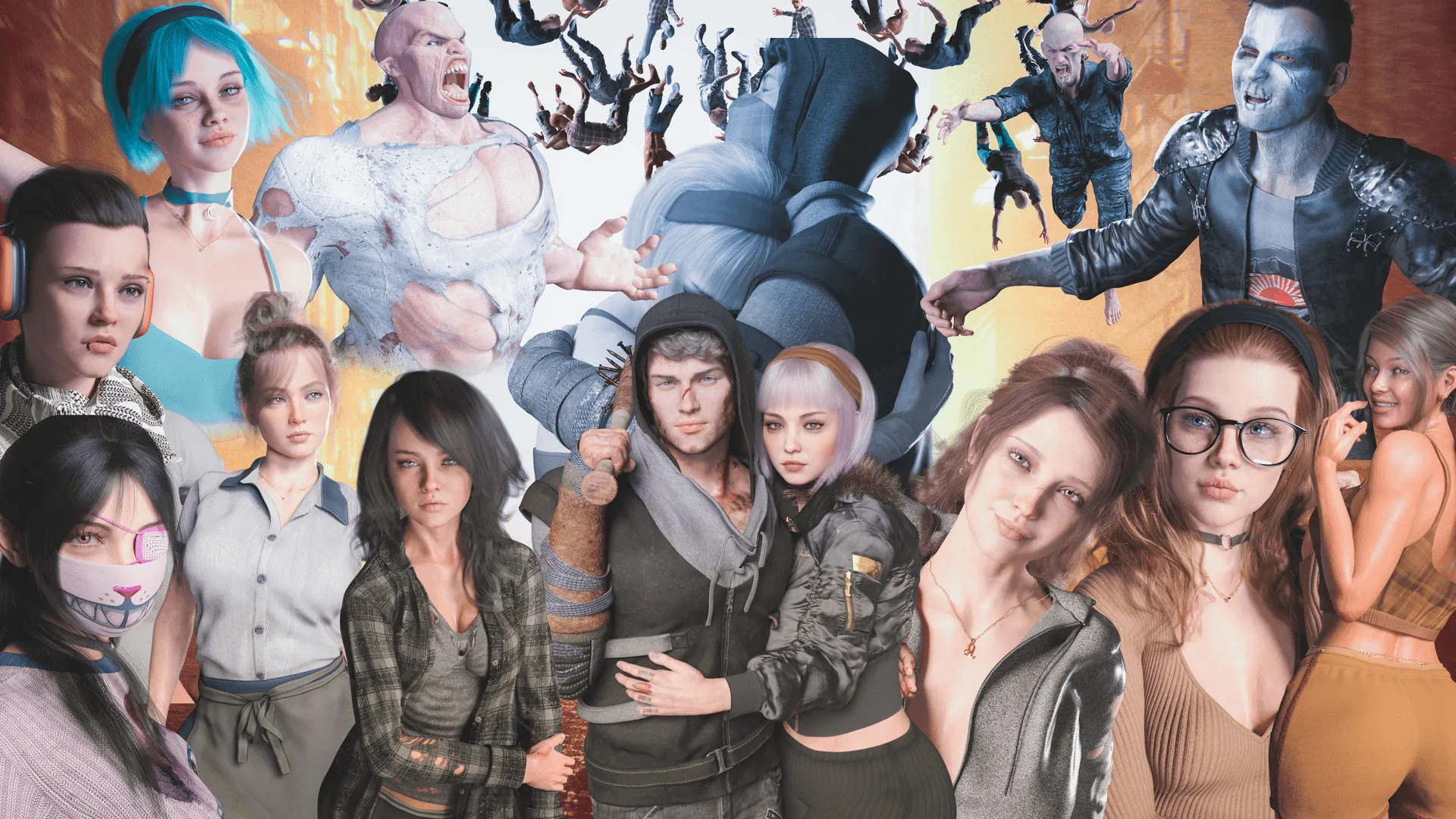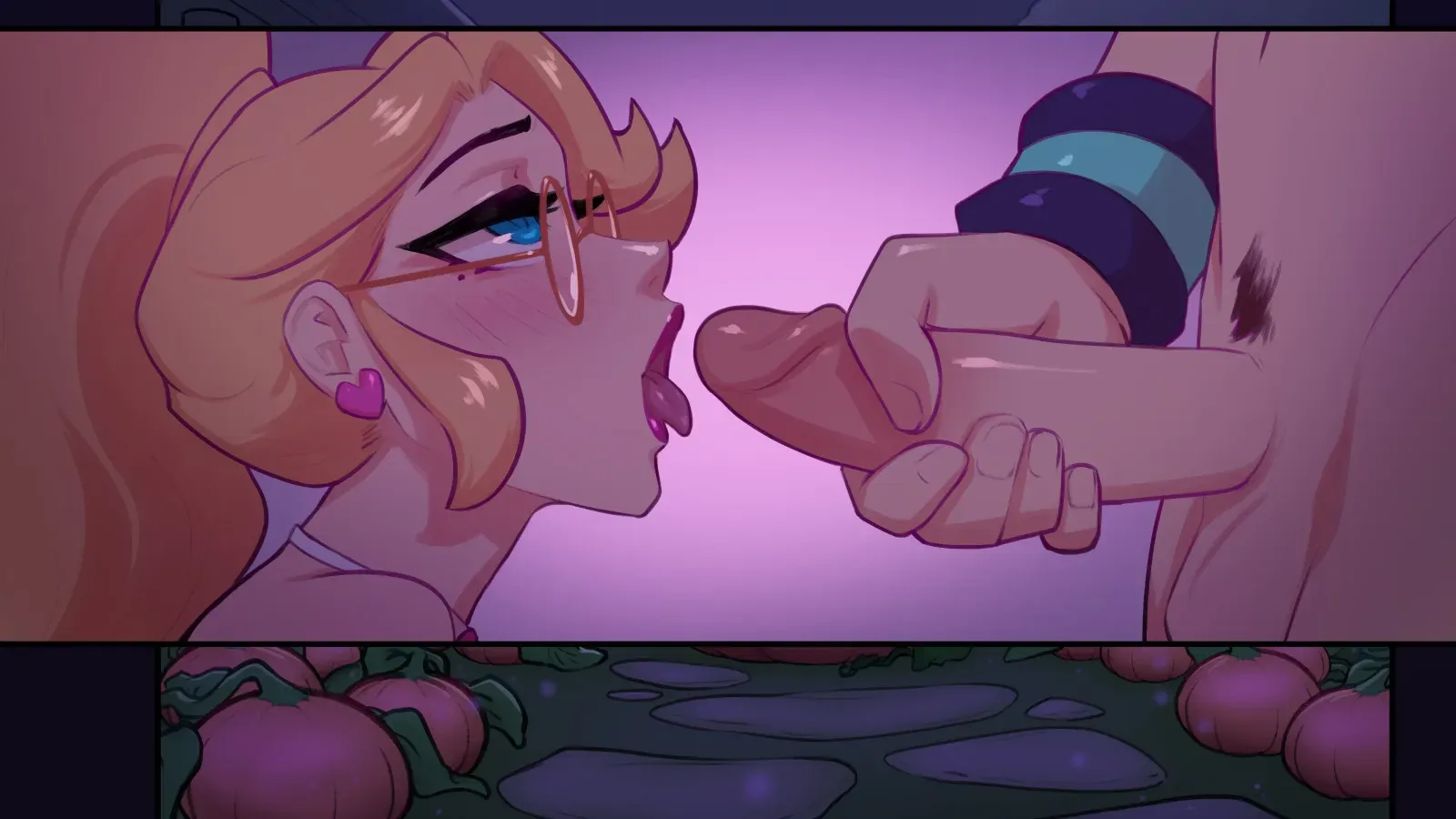
Play Love Sucks Night Two
Love Sucks Night Two review
Exploring the narrative complexity behind this adult visual novel’s supernatural romance
As the second chapter in Art Witch Studios’ acclaimed series, Love Sucks Night Two elevates interactive storytelling through its daring fusion of supernatural romance and player-driven consequences. This analysis reveals how the game balances mature themes with compelling character development, offering players unprecedented agency in shaping relationships with vampire Jan and succubus Anna. Beyond its surface-level titillation, the title presents a sophisticated examination of trust and mortality within its carnival-themed narrative framework.
Narrative Architecture & Player Agency
The Carnival Setting as Narrative Playground 🎪
Picture this: you’re wandering through a neon-lit carnival at midnight, cotton candy stuck to your fingers, and every shadow whispers secrets. Love Sucks Night Two doesn’t just use its carnival setting—it turns the whole twisted fairground into a narrative playground where your choices echo louder than creaky Ferris wheels. The game’s carnival narrative design isn’t just spooky window dressing; it’s the backbone of its non-linear storytelling, offering branching paths that shift like funhouse mirrors.
Take the Hall of Mirrors, for example. Early in the game, you’ll face a choice: confront a cursed reflection of your vampire love interest or flee to the fortune teller’s tent. This isn’t just a cosmetic decision—it locks entire story threads. I once spent three playthroughs obsessing over this moment, only to realize the carnival’s layout itself acts as a dialogue branching system. Each stall and attraction hides clues, allies, or traps that reroute relationships.
| Narrative Feature | Night One | Night Two |
|---|---|---|
| Story Paths | 4 main routes | 12 dynamic routes |
| Environment Interactions | Static locations | Evolving attractions |
| Choice Permanence | Reset each chapter | Cumulative consequences |
The table above shows how Night Two cranks up complexity. Where the first game felt like following a map, this sequel throws you into a labyrinth where even ignoring a vendor can alter endings. Pro tip: 🕯️ Always check behind the “Closed” signs—some of the best adult visual novel mechanics hide in the least obvious corners.
Time-Loop Mechanics & Consequence Systems ⏳
Ever wish you could redo a bad date? Love Sucks Night Two gives you that power—with a supernatural twist. The game’s time-loop mechanics let you relive key moments, but here’s the kicker: your mistakes stick. Burn a bridge with the werewolf bartender? That grudge carries over, forcing you to adapt. It’s like playing Jenga with your love life—pull the wrong block, and everything collapses.
The rune collection system is where replay value explodes. Collecting these glowing tokens (hidden in mini-games and dialogue trees) unlocks alternate timelines. In one playthrough, I hoarded runes to access a secret scene where my vampire crush admits their fear of daylight. Without those runes? That vulnerability stays buried. 🧛♂️
Hot Tip: Save your runes for the 3rd act—the juiciest narrative payoffs require patience.
But beware: player choice impact here is brutal. Early on, I chose to sabotage a rival suitor’s drink. Seemed harmless… until Act 3, when he returned as a vengeful ghost, derailing my romance arc. The game doesn’t just track decisions—it weaves them into a web of cause and effect that’s equal parts thrilling and terrifying.
Character Development Through Branching Dialogues 💬
Let’s talk about Zara, the siren with a knack for venomous compliments. Your first conversation with her can go two ways: match her sarcasm or offer genuine curiosity. Pick wrong, and she’ll freeze you out for chapters. But nail the dialogue branching system, and she’ll slowly reveal her tragic backstory—a masterpiece of non-linear storytelling that rewards emotional intelligence.
What makes these interactions sing is how they tie into character progression. Each dialogue choice builds “Affinity Points” across four traits: Cynicism, Compassion, Cunning, and Courage. Romance the demonic ringmaster? You’ll need sky-high Cunning. Pursue the shy ghost? Compassion is key. I learned this the hard way when my snarky vampire kept getting friend-zoned by the angelic trapeze artist. 😇
Here’s a breakdown of pivotal choices and their ripple effects:
- Trusting the Fortune Teller (Act 1): Unlocks tarot card mini-games that predict future conflicts
- Sharing Blood (Act 2): Boosts romance options but risks losing humanity points
- Exposing the Carnival’s Secret (Act 3): Can lead to a bittersweet solo ending or a polyamorous supernatural trio
Wrapping It Up with a Bow (Made of Thorns) 🌹
Love Sucks Night Two isn’t just a game—it’s a relationship simulator on steroids. The carnival narrative design ensures no two players have the same experience, while the dialogue branching system makes every word feel like a high-stakes gamble. Whether you’re here for the heartache or the haunted carousels, one thing’s clear: your choices don’t just matter here. They haunt you.
So grab your virtual flashlight and step into the carnival. Just remember: in this game of supernatural love, even the ghosts have trust issues. 👻
Love Sucks Night Two demonstrates how adult-oriented games can deliver substantive narratives through smart system design and character-driven storytelling. By prioritizing player agency and thematic coherence, it sets a new standard for mature visual novels. For those ready to engage with its complex relationships and supernatural intrigue, the game offers a thought-provoking experience that rewards multiple playthroughs.
